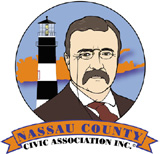SCOTUS Upholds Religious Liberty
Protects Church Run Adoption Agencies
In a significant victory, the Supreme
Court issued an unanimous ruling that rejected the City of
Philadelphia's effort to compel a Catholic adoption agency to
perform same-sex adoptions of foster children or shut operations.
The ruling while important for religious liberty is
narrow in scope as it did not resolve the broader
question of the right of conscious related to
religious beliefs vs. the state's definition of
"discrimination" in public accommodation. In this
particular case, no actual complaint was made against the
adoption agency yet the City of Philadelphia sought to compel
the agency to change their religious views on sex and morality.
The Supreme Court previously ruled in Employment Division v. Smith (1990) that generally applicable laws not targeting religious practices do not violate the First Amendment's free exercise clause. The case involved two employees of a drug rehabilitation clinic who used Peyote due to their religious beliefs and who were then fired. Both applied for unemployment benefits and were denied as they violated the state's prohibition on drug use. The court found that the government has a compelling governmental interest in denying unemployment benefits for drug use. Based on this decision, Congress passed the Religious Freedom Restoration Act (RFRA) in 1993. The law requires the use of strict scrutiny when reviewing governmental action affecting religious liberty.
The current issue that remains unresolved and continues to affect thousands of people is the right to decline participation in speech that violates one's deeply held religious views by being compelled to provide public services in support of same sex marriage in order to not run afoul of non discrimination in public accommodation. many current public accommodation statutes require bakers, photographers, website creators and florists to participate in homosexual weddings regardless of their deeply held religious views on marriage. Homosexual activists reject any carve out for one's religious views and have pursued a scorched earth policy on anyone who disagrees with their position. This is why the proposed Equality Act excludes the Religious Freedom Restoration Act (RFFA) as a defense for religious liberty.
The most notable case was Colorado baker Jack
Phillips. Mr. Philips made cakes and other baked
goods for all occasions including weddings. He had
no issue working with homosexual customers, however
when asked to bake a cake for a same-sex wedding, he
declined citing his religious beliefs. A complaint
was filed with the Colorado Human Rights Commission
which ultimately found that he violated Colorado's
public accommodation law. Upon review by the Supreme
Court in the case of
Masterpiece Cakeshop v. Colorado Civil
Rights Commission, 584 U.S. 2018,
the court reiterated its view that opposition to
homosexual marriage is rational as a matter of law,
however it also held that “while those religious and
philosophical objections are protected, it is a
general rule that such objections do not allow
business owners and other actors in the economy and
in society to deny protected persons equal access to
goods and services under a neutral and generally
applicable public accommodations law.”
While adoption agencies are protecting for the moment, what does the future hold for religious liberty the people like Jack Philips. Only time and judicial integrity will tell.
